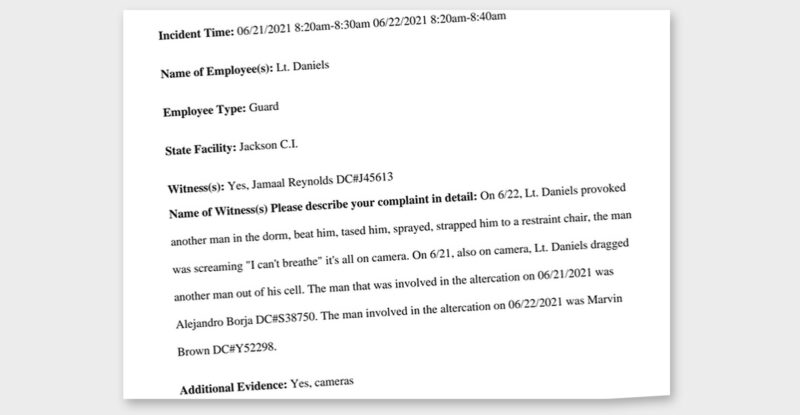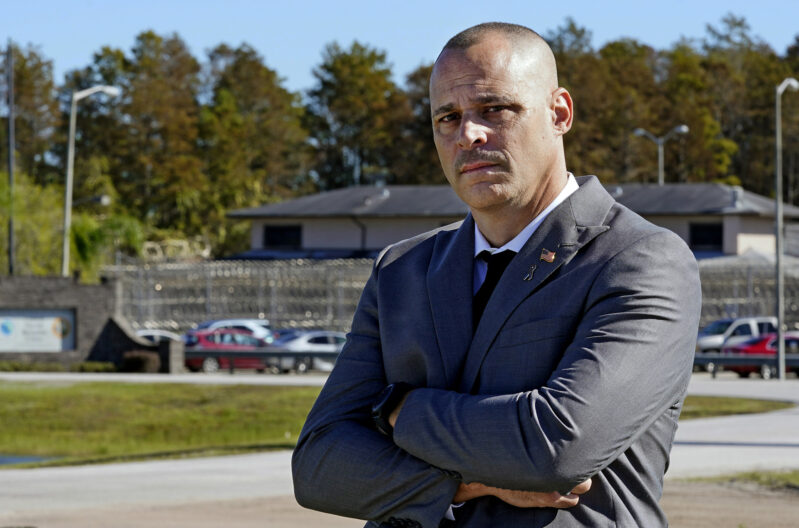After breaking news earlier this year with the story of a failed murder plot against a Black inmate by Ku Klux Klansmen who worked as prison guards in Florida, New York-based AP investigative reporter Jason Dearen kept digging to reveal systemic race-based abuse of inmates in the nation’s third largest prison system.
Building sources and following tips he received from a former prison investigator, former guards, inmates and their families, Dearen showed how and why the state turned a blind eye to racist behavior by white supremacist guards.
My latest: After 3 FL prison guards/KKK members were tried in 2017 (https://t.co/KOc8aigZwH) for plotting a Black inmate’s murder, correx offls said no evidence of a wider problem. I talked to inmates/guards and found FL rarely probes white supremacists in its employ. :thread:1/4
— Jason Dearen (@JHDearen) November 19, 2021
Via handwritten letters,from contraband cell phones and computers at the prison,Dearen heard various stories from inmates,and while many could not be corroborated,he got in touch with the mother of a prisoner who reported beatings by officers openly touting their white supremacist group affiliations.
Dearen also obtained the letters of another inmate,Jamaal Reynolds,whose account of the inmate beatings were very detailed, and who reported it all to the state’s oversight body — the Florida Department of Corrections Office of Inspector General.

Dearen approached the state with Reynolds’ letters,which stated that the beatings had been caught on video. The state said it was not investigating,and provided no details. And the department hasn’t responded to the AP’s August public records requests for the videos.
Not only did that not dissuade Dearen,it piqued his interest on why authorities were ignoring the issue.
After weeks of casting about for current and former prison officers,Dearen earned the trust of a former state prison investigator who explained the legal and cultural obstacles faced by the Office of Inspector General when trying to hold accountable officers who belong to hate groups or criminal gangs.
The source explained that the cases are too complex for staff to investigate unless officers “snitch” on each other, a rarity in a system steeped in secrecy.
Dearen also learned that the guards try to intimidate not just inmates but Black colleagues.

Collectively,the inmates,guards and inspectors painted a picture of a broken prison system that allows white supremacists and other criminal gang members to not only gain employment with the Department of Corrections,but to operate with virtual impunity.
As Dearen wrote,it’s a dynamic that can lead to what the former Florida prison investigator described as “criminals watching over criminals.”
His story struck an immediate chord,running on the front pages of all of Florida’s major newspapers including the Tampa Times,Miami Herald and Orlando Sentinel. An opinions editor at the South Florida Sun Sentinel asked “How much more rot lies within the prison system? We may never know,because the department will not investigate.”
For dedicated reporting on white supremacy embedded among prison employees,a festering problem that is probably not confined to Florida’s state prison system, Dearen earns AP’s Best of the Week — Second Winner honors.
Visit AP.org to request a trial subscription to AP’s video,photo and text services.
For breaking news, visit apnews.com





